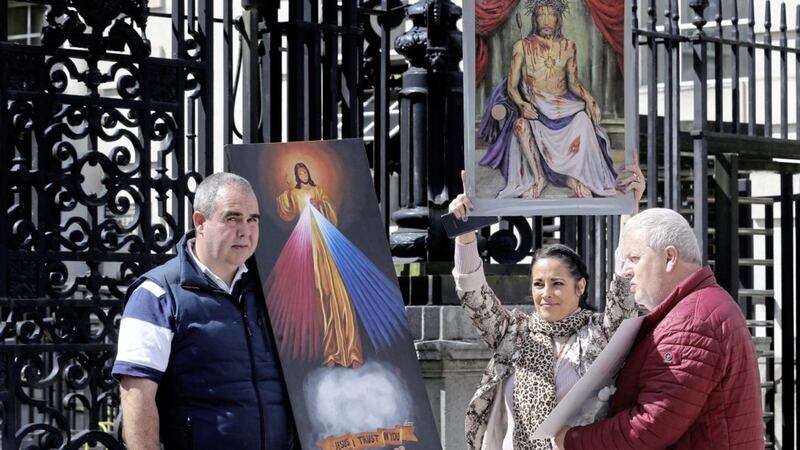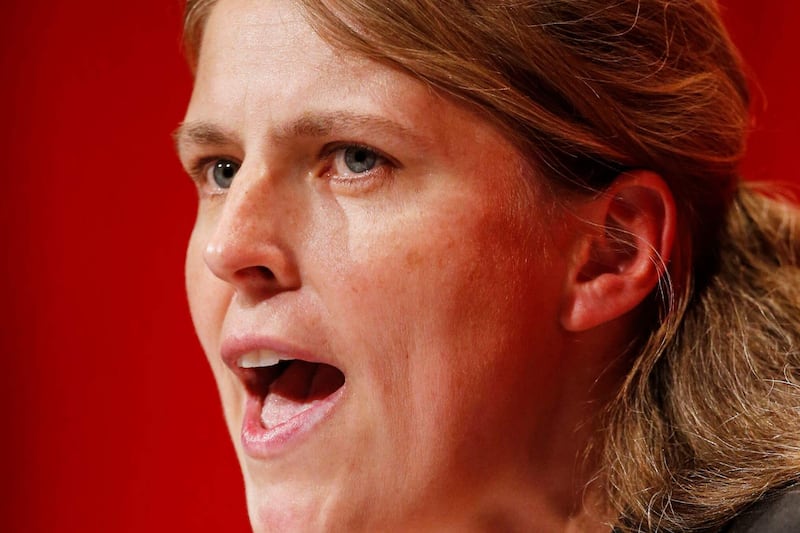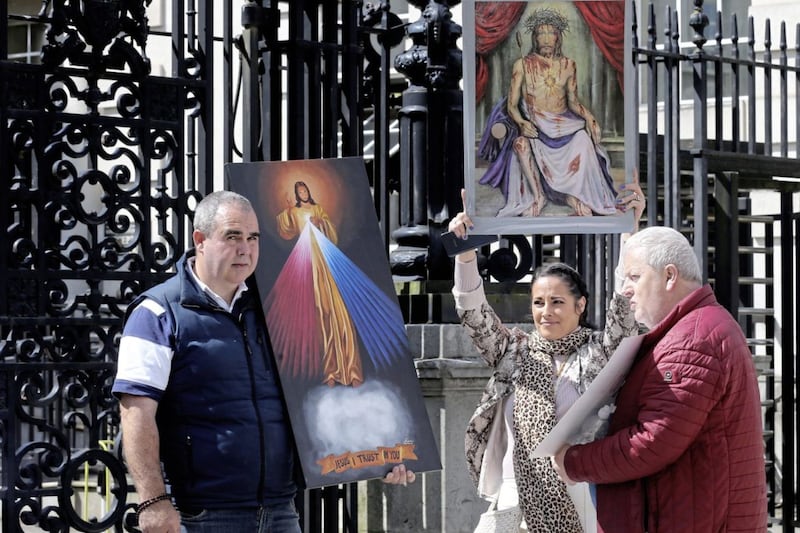STORMONT'S Executive Committee has no legal capacity to commission abortion services in the region, the High Court heard yesterday.
Counsel representing the power-sharing body claimed a challenge to its alleged failure to act is fundamentally misconceived.
The Human Rights Commission has issued proceedings against it over delays in implementing fully funded facilities for women seeking terminations.
Judgment was reserved in its bid to have the authorities compelled to set up services.
Even though Westminster passed legislation in 2019 to decriminalise terminations in Northern Ireland, a centralised model for providing abortions has yet to be put in place.
The hold-up allegedly breaches the human rights of women and girls who either have to travel to England for a termination or take unregulated pills.
Delays have continued for more than a year while government bodies abdicate their legal responsibilities and point the finger of blame at each other, it was claimed.
The case is being taken against Secretary of State Brandon Lewis, the Department of Health and the Executive.
But Tony McGleenan QC, for the Stormont cabinet, argued that it does not have the necessary legal powers.
"There's a misconception at the heart of this," he said.
"The Executive Committee is, on no understanding of the law, in a position to commission services, it has no capacity to do so."
He described criticisms made against his client as "ill-founded", and based on a limited involvement in a paper tabled by Health Minister Robin Swann in April last year.
Discussions at the time centred on what options were available due to Covid-19's impact on women obtaining terminations in England.
With no agreement reached, the barrister set out how the First Minister and Deputy First Minister are constrained from taking independent action.
During exchanges Mr Justice Colton recognised: "It seems to be accepted that the Executive Committee is not going to, on present form, to agree to commission the type of abortion services the Secretary of State is obliged to deliver."
"The answer is there is no merit at all in the challenge to the Executive Committee," Mr McGleenan contended.
However, David Blundell QC, for the Commission, maintained there has been a "total failure" by government bodies to act for 15 months.
Reserving his decision following three days of legal argument, Mr Justice Colton pledged to give his judgment as soon as possible.








